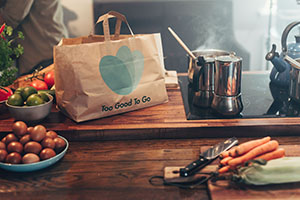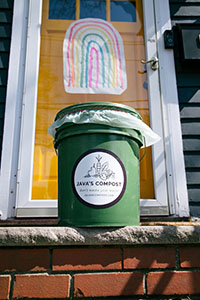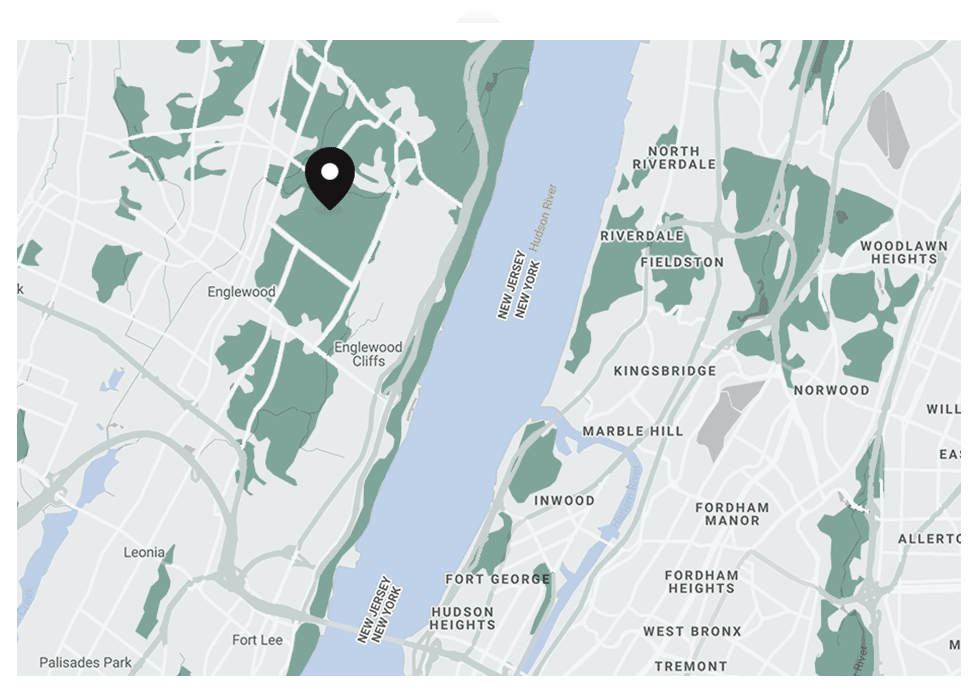Tips from the PA Green Committee to help you become more eco-friendly
Sometimes all it takes to lessen your family’s impact on the planet is awareness and guidance. By reading our Wednesday Envelope’s weekly Green Tip, it is the hope of the PA Green Committee that you’ll find inspiration and information to do just that. Tips can include ways to recycle or reuse items, save energy in your home, help nature in your own backyard and beyond, and ways to support industries and businesses committed to helping the environment. Lots of small actions add up to big change!
– Monica Warren, Chair, EMS PA Green Committee


Stop receiving catalogs that go straight into the paper recycling bin. Use the PaperKarma app and take a photo of whatever junk mail you no longer want to receive. You will be removed from the company’s mailing list permanently.
Trade in your old denim. Levi’s Secondhand allows you to bring your secondhand Levi jeans and jackets to any Levi’s retail store and receive a Levi’s gift card for the value of your trade-in (up to $35). The company estimates that the carbon footprint of a pair of cleaned and repaired jeans is 80 percent lower than new. Just ex- tending the life of a piece of clothing by nine months, according to them, does more to reduce environmental impact than anything else that can happen in the life cycle of that apparel.
Stop buying an endless amount of hand soap, dish soap, laundry detergent, cleaners — not to mention their bulk-size refills! Consider making the jump to Blueland. You buy one glass bottle for each item, delivered in eco-friendly packaging, and refill it with dissolvable tablets. You will save on shelf space; plus, you’ll reduce the products that end up in your recycling bin. No need to commit to everything at once; try out one of the items and see if you like the system.
Don’t throw away those mascara wands — the wand didn’t dry out or get used up with the mascara. Repurpose it through Wands for Wildlife, a volunteer-run nonprofit that accepts mascara wands to be used at wildlife rehabilitation centers to help remove fly eggs and larvae from injured or orphaned animals. Just print out their donation form, fill it in, and mail it with the wands to the address on the form. Save resources and postage and collect a few of them to mail in together (consider partnering with neighbors or extended family).
Let your choice of where to invest your money make a positive impact on the planet. Check out NatureVest, the in-house investment impact team at The Nature Conservancy. Their innovative investment models include the areas of forests and carbon, ocean protection, sustainable agriculture and water, and green infrastructure for cities.
Change your washing machine default setting to use cold water. This will save energy and money on your electricity bill. And you’ll be making a positive impact on the planet and your wallet; up to 90 percent of energy used in a single cycle comes from heating the water!
Join a “Buy Nothing Project” Facebook group. Founded in 2013 by two friends, Liesl and Rebecca, the Buy Nothing Project uses Facebook Groups as its platform and allows folks to start their own groups or join ones already in their community to pass along and get items for free. There’s already one for Englewood, River Edge, Fort Lee, Closter, Cresskill, Demarest, Haworth, and Alpine, just to name a few.
Buy organic fresh fruit and vegetables. The non-profit Environmental Working Group has published their updated dirty dozen list for 2021 of the top fruits and vegetables that con- tain the highest amounts of pesticides despite being rinsed in the field and washed at home. Thus, if you’re picking and choosing which organic fruits and veggies to purchase, avoid the items on this list.
Seek out a non-toxic, professional dry cleaning alternative or “green clean- er” in your area. Eighty percent of dry cleaners in the U.S. use perchloroethylene, a solvent that has been linked to cancer, nervous system damage, and hormonal disruption. Green Apple Cleaners, located in New York, Brooklyn, and Lodi, offers non-toxic dry cleaning and wet cleaning, with free pick-up and drop-off, and 50 percent off your first order.


Help cut down on food waste. Every year 1/3 of the food produced in the world goes to waste — it NEVER
gets consumed. This food, rotting in landfills, is responsible for 8 percent of all greenhouse gas emissions. Enter the Too Good To Go app. Their mission is to connect restaurants with eco-conscious and wallet-conscious patrons to offer food at deep discounts so that it’s not just thrown away at the end of the day. There are places involved in New York City, and they’re actively recruiting locations in New Jersey. For instance, Panaderia La Sultana 3 in Teaneck has partnered with them.
Plant native plants on your property. These plants are essential to birds, butterflies, and insects. Check out the Native Plant Society of New Jersey website to find out what plants are native to your area and how and where to buy them. Consider turning a small section of your mowed lawn into a milkweed patch this year and feel good knowing that you are helping monarch butterflies.
Bring mason and leafcutter solitary bees to your backyard. Rent Mason Bees mails bee cocoons and nesting blocks to subscribers, who, at the end of the season, send back the nesting block, now filled with eggs so the new bees can be used to help pollinate orchards across the U.S. Kits start at $40. Or have your child(ren) make their very own Mason Bee Hotel.
Donate interview-appropriate women’s attire and accessories. Dress for Success accepts donated clothes and accessories and also provides a network of support and the devel- opment tools to help women thrive in work and in life. Visit their website to find out if they have an active site in your area. Please be sure to read their individual requirements for items when making an appointment to drop off your donation.
Do not idle your car while in carline during drop-off and pick-up (or anywhere, really). From the U.S. Dept of Energy: Idling your vehicle — running your engine when you’re not driving it — truly gets you nowhere. Idling reduces your vehicle’s fuel economy, costs you money, and creates pollution. Idling for more than 10 seconds uses more fuel and produces more emissions that contribute to smog and climate change than stopping and restarting your engine does. Get too cold in the winter or hot in the summer in your car if the engine is not running? Turn your engine back on for a little bit and then be sure to turn it off again.


Learn about compost pick-up in your area. Java’s Compost, the company used to compost the food waste at last year’s EMS International Food Festival, offers residential and commercial compost pickup to areas around New Jersey and sells composting supplies to do it yourself on any scale. Their website lists the towns they cur- rently cover for residential pickup. If you want to start composting but live outside of these areas, please com- plete the form on their website so they can keep track of your interest and location. Once they have 30 interest- ed families in a town, they can set up a new route.
Recycle your makeup and skincare product containers. Now you have two ways that you can, thanks to Terracycle and Nordstrom. Collect items at home and then bring them into any Nordstrom or Nordstrom Local for recycling. Nordstrom intends to recycle 100 tons of beauty packaging by 2025! Alternately, you can order a box from Terracycle for $108 (including shipping) and start collecting all your items at home. When the box is full, print a shipping label and schedule a free UPS pick-up.
There's No Better Time to Support Your Child's Education
Every time you donate to one of Elisabeth Morrow's dedicated funds, you help enrich the daily experiences of our community on campus. STEAM spaces are improved, library catalogues expanded, scholarships are funded, and teachers are hired. Every day, you can see the impact your generous donations have on campus.


